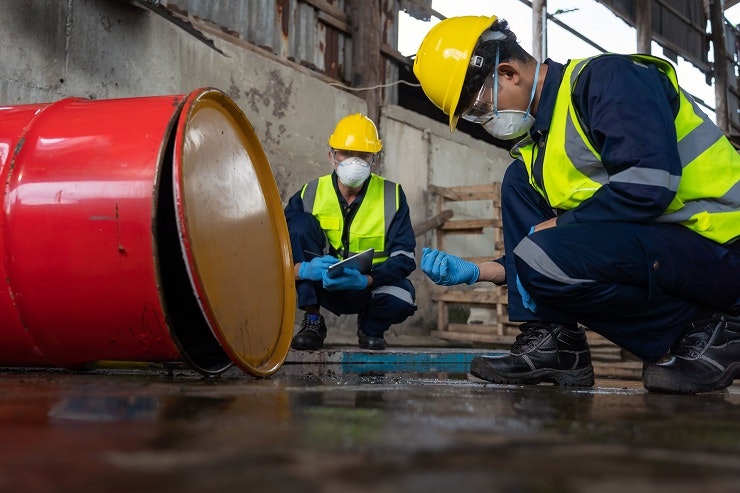
Blog
- Employer advice
Home
Resources
Employer advice

Charlie Herrera Vacaflor, Employment Law & HR Content Senior Consultant
(Last updated )

Charlie Herrera Vacaflor, Employment Law & HR Content Senior Consultant
(Last updated )
Jump to section:
The Ontario Workplace Safety and Insurance Board (WSIB) has published a new operational policy on communicable illnesses. Under this policy, workers are entitled to benefits for a communicable illness that arose out of and contracted during the course of employment. It directly addresses the standard of proof and evidence gathering and review when processing a claim. The updates will come into effect for all communicable illness claims that have an accident date either on or after December 1, 2023.
Employers in Ontario must report a workplace injury or illness once they become aware a worker has an occupational illness or they’ve filed a claim for an occupational illness. To help you understand the process, this article will explain what employers can expect when a worker files a communicable illness claim to the WSIB.
The WSIB Policy has broadened the scope of what can be considered a communicable illness. In most cases, a communicable illness is caused by infectious agents such as viruses, bacteria, and fungi that are spread directly or indirectly through person-to-person or animal-to-person interactions. The illness can also be transmitted through contaminated surfaces, food, water, objects, or environments.
Examples of communicable illnesses include:
Currently, to access a WSIB communicable illness benefit, the worker must show:
To establish a worker has contracted a specific communicable illness, a WSIB adjudicator will request confirmatory testing of infection (i.e., a positive result from a lab or diagnostic test) and a diagnosis from a treating health professional qualified to provide such diagnoses.
The policy recognizes certain valid reasons where an affected employee may not be able to seek healthcare attention immediately. These reasons include cases where a worker could not access or did not qualify for laboratory or diagnostic testing or where the worker was following the guidance or direction of a public health authority (e.g., quarantine or self-isolation). These circumstances won’t detract from establishing proof of accident.
WSIB’s policy clarifies that workers won’t be denied benefits for the sole reason that they chose not to immunize against a communicable disease.
A communicable disease is considered to arise out of and in the course of employment when, after evaluating all the relevant evidence, a WSIB decision-maker is satisfied that the worker’s employment significantly contributed to contracting the illness. This is either through the performance of a work-related duty or an activity related to their employment.
A clear-cut example where a worker’s employment significantly contributed to contracting a communicable disease can be where a laboratory worker gets splashed in the face with an infected blood sample. There will be other scenarios where the worker’s employment places the worker at an increased risk of contracting a communicable illness.
Some occupations and work environments have higher risks of contracting a communicable illness (e.g., laboratory workers, healthcare workers, and workers in contact with animals). In those circumstances, a worker’s job duties create opportunities for exposure to a communicable illness more than their typical daily activities.
The policy outlines relevant factors a WSIB adjudicator should consider when determining the illness is work-related. These include how the illness was transmitted, the duration, frequency, and intensity of potential exposures, as well as control measures implemented in the workplace such as the use of personal protective equipment (PPE).
Community-acquired communicable illnesses (e.g., influenza or COVID-19) will not be covered unless there is evidence that makes it probable, rather than merely possible, that a worker’s employment significantly contributed to getting the disease.
If the Ontario government declares a public health emergency related to a communicable illness, the WSIB will consider that a worker’s risk of contracting the communicable illness has increased when:
A worker’s entitlement to benefits will continue if they’re impaired as a result of their injury. This includes entitlement to benefits for secondary conditions linked to work-related injury. For communicable illnesses, the worker and employer’s return-to-work obligations remain the same. Employers are expected to provide suitable and available work for the workers once they’re well enough to return to their jobs.
Our award-winning team of HR professionals can help you develop a workplace communicable illness policy that’s compliant with WSIB requirements. We can assess your workplace for risks, take care of all your essential health and safety documentation, and provide guidance on safe work practices. Call 1(833) 247-3652 today to find out more.
Home
Resources
Employer advice
Find out what 6,500+ businesses across Canada have already discovered. Get round-the-clock HR and health & safety support with Peninsula.
